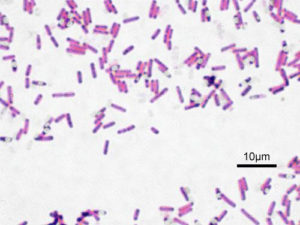Most of us are aware that the human body is covered by and full of microorganisms. And we understand that most of these microorganisms are helpful, both in terms of competition with and protection against invading microorganisms, and in the gut, as agents of digestion.

In the past decade, however, research has brought compelling details implicating gut microbes in obesity, cancer, insulin resistance and such central nervous system disorders as depression, austism spectrum disorder and multiple sclerosis (Adnan, S. et al.). Yet the mechanisms and details of these associations have not been fully demonstrated.
Gut microbes have been proven to be connected to thickening of heart vasculature, known as atherosclerosis. Researchers have demonstrated that bacteria metabolize choline and L-carnitine from food to trimethylamine, which crosses the gut barrier into circulation and reaches the liver. In the liver, trimethylamine is metabolized to the atherogenic molecule triethylamine-N-oxide (Gregory, J.C. et al., Brown and Hazen). These studies are among the few that provide a direct connection between gut microbes and a pathological condition.
Continue reading “Gut Microbes and Hypertension: Demonstrating a Causal Link”